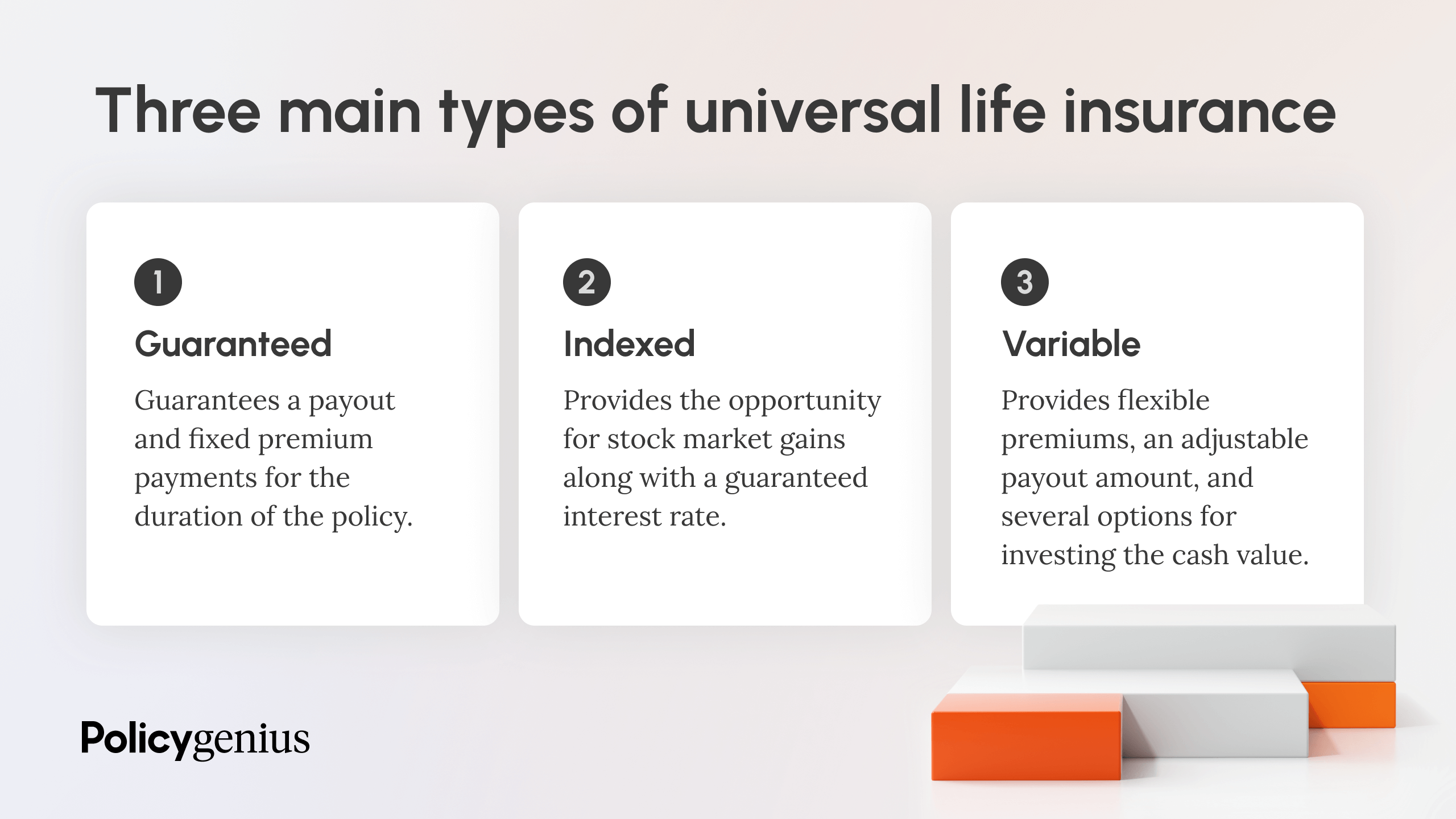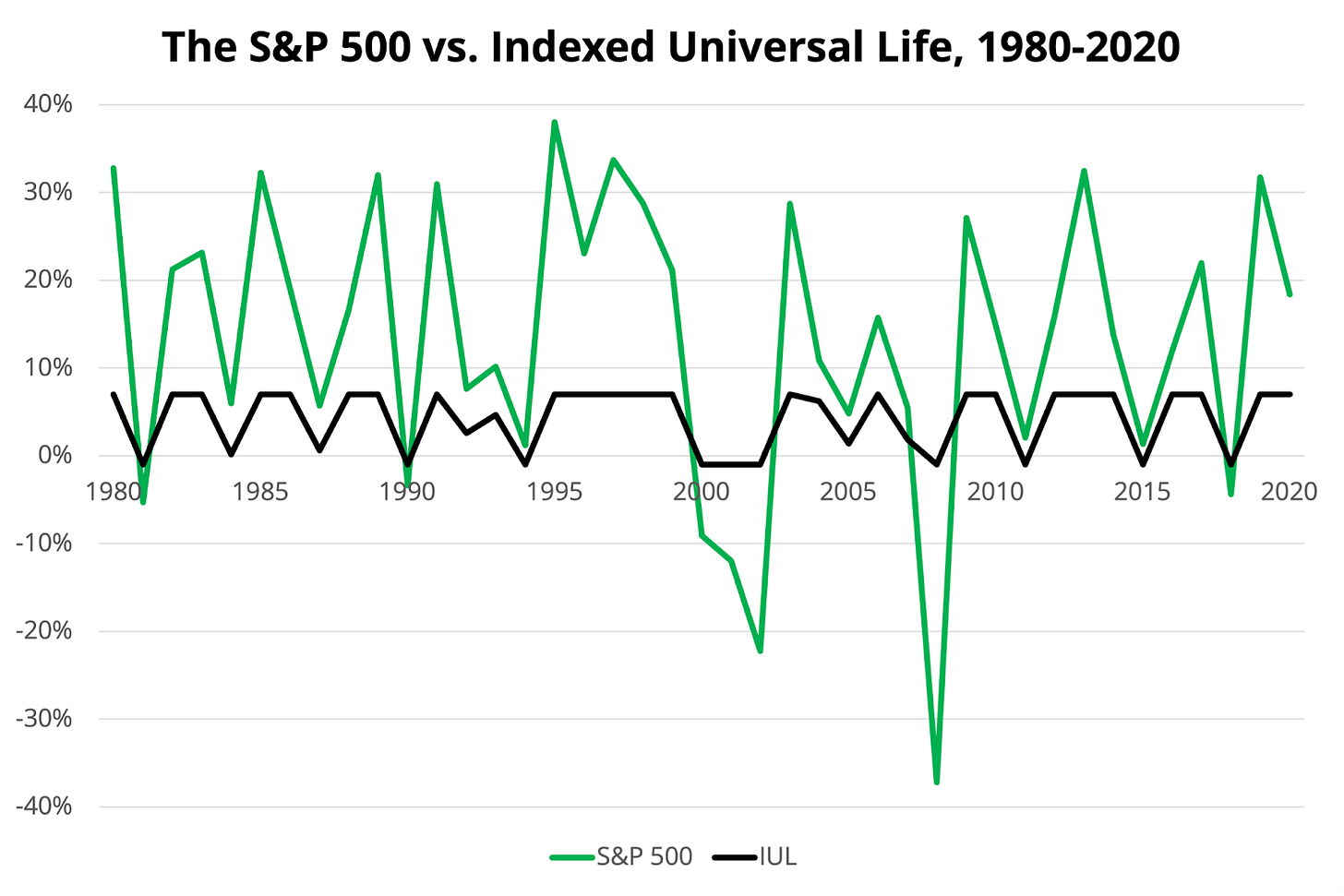All Categories
Featured
Table of Contents
Do they contrast the IUL to something like the Vanguard Total Amount Stock Market Fund Admiral Shares with no load, a cost ratio (EMERGENCY ROOM) of 5 basis points, a turn over proportion of 4.3%, and a remarkable tax-efficient record of circulations? No, they compare it to some dreadful proactively managed fund with an 8% lots, a 2% ER, an 80% turnover ratio, and a horrible document of short-term resources gain circulations.
Common funds commonly make yearly taxable circulations to fund proprietors, even when the value of their fund has decreased in value. Shared funds not just call for revenue reporting (and the resulting annual tax) when the common fund is going up in worth, however can additionally impose revenue tax obligations in a year when the fund has actually gone down in worth.
You can tax-manage the fund, collecting losses and gains in order to reduce taxable distributions to the investors, but that isn't in some way going to transform the reported return of the fund. The possession of shared funds might require the shared fund proprietor to pay estimated taxes (variable universal life insurance problems).

IULs are very easy to position to ensure that, at the owner's death, the beneficiary is exempt to either income or inheritance tax. The same tax reduction methods do not work virtually too with common funds. There are numerous, often pricey, tax catches connected with the timed buying and selling of common fund shares, traps that do not put on indexed life Insurance.
Possibilities aren't really high that you're going to be subject to the AMT because of your shared fund circulations if you aren't without them. The remainder of this one is half-truths at best. As an example, while it is real that there is no earnings tax obligation because of your beneficiaries when they inherit the earnings of your IUL plan, it is also real that there is no earnings tax obligation because of your beneficiaries when they inherit a common fund in a taxable account from you.
Iul Life Insurance Policy
The government inheritance tax exception restriction mores than $10 Million for a pair, and expanding each year with inflation. It's a non-issue for the huge majority of physicians, a lot less the remainder of America. There are much better ways to prevent estate tax concerns than buying investments with reduced returns. Mutual funds might cause income taxes of Social Safety advantages.

The development within the IUL is tax-deferred and might be taken as tax obligation cost-free earnings via finances. The plan proprietor (vs. the shared fund manager) is in control of his/her reportable earnings, therefore allowing them to lower or perhaps eliminate the tax of their Social Protection advantages. This set is wonderful.
Right here's one more very little issue. It's real if you buy a shared fund for state $10 per share right before the distribution date, and it disperses a $0.50 distribution, you are then going to owe taxes (most likely 7-10 cents per share) in spite of the truth that you haven't yet had any kind of gains.
In the end, it's truly about the after-tax return, not how much you pay in taxes. You are going to pay more in tax obligations by utilizing a taxed account than if you purchase life insurance policy. You're likewise probably going to have even more money after paying those tax obligations. The record-keeping needs for possessing mutual funds are considerably more complicated.
With an IUL, one's records are maintained by the insurer, duplicates of yearly declarations are sent by mail to the owner, and circulations (if any type of) are totaled and reported at year end. This one is likewise type of silly. Of course you ought to maintain your tax obligation records in instance of an audit.
Equity Indexed Whole Life Insurance
Rarely a reason to acquire life insurance policy. Common funds are commonly component of a decedent's probated estate.
In enhancement, they go through the hold-ups and costs of probate. The profits of the IUL plan, on the various other hand, is constantly a non-probate circulation that passes beyond probate straight to one's named beneficiaries, and is therefore exempt to one's posthumous creditors, unwanted public disclosure, or similar delays and costs.
Medicaid incompetency and lifetime earnings. An IUL can give their proprietors with a stream of revenue for their whole life time, regardless of how long they live.

This is useful when arranging one's affairs, and converting properties to revenue before an assisted living facility arrest. Shared funds can not be transformed in a similar fashion, and are generally taken into consideration countable Medicaid assets. This is an additional foolish one promoting that poor individuals (you recognize, the ones that need Medicaid, a federal government program for the bad, to pay for their assisted living home) need to utilize IUL rather of shared funds.
Adjustable Life Insurance Vs Universal Life Insurance
And life insurance policy looks dreadful when contrasted fairly versus a retirement account. Second, people that have money to acquire IUL above and beyond their retirement accounts are going to need to be dreadful at handling cash in order to ever before qualify for Medicaid to pay for their nursing home costs.
Chronic and incurable ailment motorcyclist. All policies will enable a proprietor's simple access to money from their plan, frequently forgoing any type of surrender fines when such individuals experience a significant ailment, require at-home treatment, or come to be restricted to an assisted living home. Common funds do not provide a comparable waiver when contingent deferred sales fees still apply to a shared fund account whose owner requires to offer some shares to fund the prices of such a stay.
Life Insurance Tax Free Growth
You obtain to pay more for that benefit (rider) with an insurance plan. Indexed universal life insurance policy offers death benefits to the recipients of the IUL owners, and neither the proprietor neither the recipient can ever before shed money due to a down market.
I definitely do not need one after I reach financial freedom. Do I desire one? On average, a buyer of life insurance policy pays for the true cost of the life insurance policy benefit, plus the prices of the policy, plus the earnings of the insurance firm.
Variable Universal Life Insurance Problems
I'm not totally certain why Mr. Morais threw in the entire "you can not lose cash" again here as it was covered rather well in # 1. He simply intended to duplicate the most effective marketing point for these points I mean. Again, you don't lose nominal bucks, but you can shed real bucks, as well as face severe opportunity expense as a result of reduced returns.

An indexed global life insurance policy policy proprietor may trade their policy for a totally various policy without causing income tax obligations. A mutual fund owner can stagnate funds from one shared fund firm to another without marketing his shares at the previous (hence activating a taxed event), and repurchasing new shares at the last, often subject to sales costs at both.
While it is real that you can trade one insurance plan for one more, the factor that individuals do this is that the very first one is such a dreadful plan that even after purchasing a brand-new one and undergoing the early, unfavorable return years, you'll still appear ahead. If they were offered the appropriate policy the initial time, they should not have any type of desire to ever exchange it and undergo the early, adverse return years again.
Latest Posts
Prudential Iul
Group Universal Life Insurance Pros And Cons
Which Is Better Term Or Universal Life Insurance